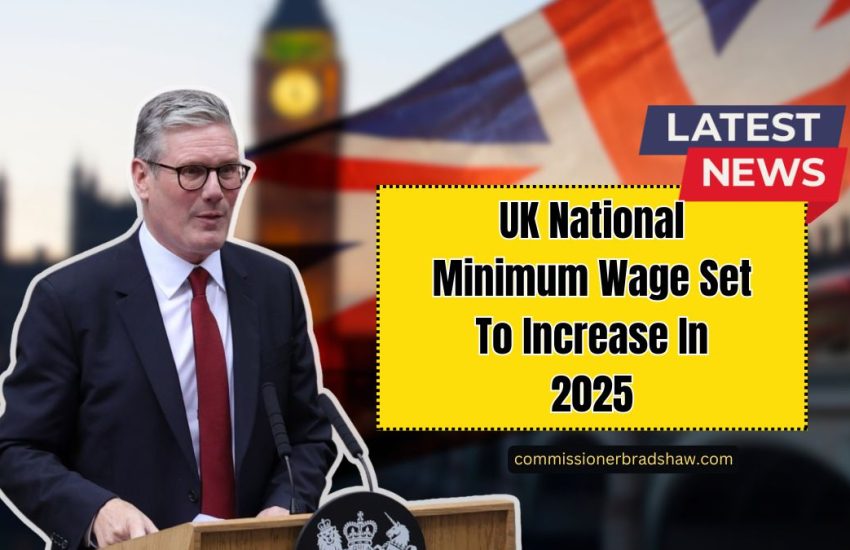Effective April 2025, the UK Government has implemented significant increases to the National Minimum Wage (NMW) and National Living Wage (NLW).
These adjustments aim to align wages with the rising cost of living and ensure fair compensation across various age groups and employment statuses.
What Is the National Minimum Wage (NMW)?
The National Minimum Wage (NMW) is the minimum hourly pay that most workers in the UK are entitled to. The National Living Wage (NLW) applies to workers aged 21 and over.
These rates are reviewed annually and are influenced by recommendations from the Low Pay Commission (LPC), considering factors like inflation, economic conditions, and living costs.
2025 Minimum Wage Rates: Detailed Breakdown
The following table outlines the updated wage rates effective from 1 April 2025:
| Category | New Rate (per hour) | Increase (£) | Increase (%) |
|---|---|---|---|
| National Living Wage (21 and over) | £12.21 | £0.77 | 6.7% |
| 18–20 Year Old Rate | £10.00 | £1.40 | 16.3% |
| 16–17 Year Old Rate | £7.55 | £1.15 | 18.0% |
| Apprentice Rate | £7.55 | £1.15 | 18.0% |
| Accommodation Offset | £10.66 | £0.67 | 6.7% |
Key Changes and Their Implications
- National Living Wage (21 and over): Increased to £12.21, benefiting over 3 million workers and marking a significant step towards a genuine living wage.
- 18–20 Year Olds: A substantial 16.3% increase to £10.00, aiming to narrow the wage gap between younger and older workers.
- 16–17 Year Olds and Apprentices: Both see an 18% rise to £7.55, reflecting the government’s commitment to supporting young workers and those in training.
These changes are part of the government’s broader initiative to ensure fair pay and reduce income inequality across different age groups.
Impact on Workers and Employers
For Workers:
- Increased Earnings: Full-time workers aged 21 and over will see an annual increase of approximately £1,400.
- Improved Living Standards: Higher wages aim to alleviate financial pressures and improve overall quality of life.
For Employers:
- Budget Adjustments: Businesses, especially in sectors like hospitality and retail, may need to reassess their wage structures and budgets to accommodate the increased labor costs.
- Compliance: Ensuring adherence to the new wage rates is crucial to avoid penalties and maintain fair labor practices.
While the wage increases support workers, employers are encouraged to plan accordingly to manage the financial implications effectively.
The 2025 increase in the UK’s minimum wage rates underscores the government’s commitment to fair compensation and reducing income disparities.
While workers stand to benefit from higher earnings, employers must navigate the financial adjustments required.
Staying informed and compliant with these changes is essential for both employees and employers to ensure a fair and equitable workplace.
FAQs
When do the new minimum wage rates take effect?
The updated rates are effective from April 2025.
Who is eligible for the National Living Wage?
Workers aged 21 and over are entitled to the National Living Wage.
How does the apprentice rate apply?
The apprentice rate applies to individuals under 19 or 19 and over in the first year of their apprenticeship. After the first year and if aged 19 or over, they are entitled to the minimum wage for their age group.

